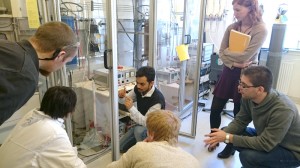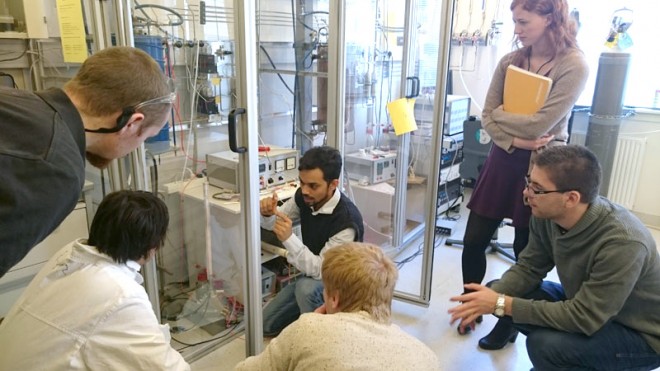Have you thought about how much energy that disappears with the hot water you shower in? Or, to turn it around, how much could be saved if we manage to collect this energy before the water goes down the drain?
Energy loss
In industry, there are also many processes where significant amounts of energy is lost as heat. Take for example the metals industry, where raw materials are processed in furnaces heated up to 1000’s of degrees before they are cooled down. There will be major environmental and economic benefits from utilizing this energy. Thermoelectric materials may be the key.
Thermoelectric materials
Thermoelectric materials have the wonderful property that they can convert heat directly into electric power, and will therefore be highly relevant in this kind of processes. They make it possible to produce electrical energy by utilizing heat that would otherwise be lost.
At the Department of Materials Science and Engineering at NTNU, researchers are trying to develop thermoelectric materials based on oxides. Oxides are stable in air up to very high temperatures and are therefore suitable for industrial processes where temperatures can be very high.

Learning about oxides
The picture shows PhD candidate Sathya P. Singh instructing 5th grade students at the department.
Students are learning how to measure some important thermoelectric properties of an oxide that shows promising properties in terms of potential “harvesting” of waste heat.
Someday, this type of oxide might be the basis for energy savings both in industry and in private homes.
